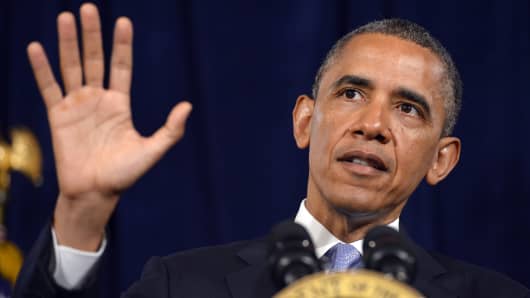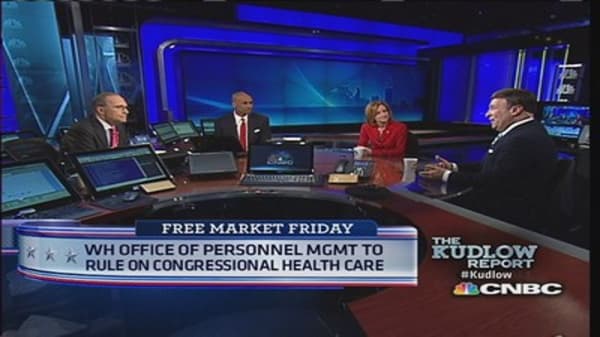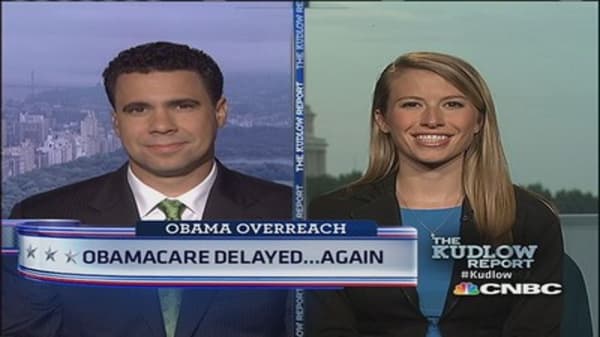Obamacare might not be a "train wreck," but the wheels sure do keep coming off of it.
Yet another delay in a key part of the Affordable Care Act gave critics more ammunition and raised further questions about the Obama administration's authority to delay implementing sections of the law without congressional approval.
The delay—which came to light Tuesday and relates to limits on out-of-pocket medical costs—also inflamed a leading patients' rights organization that originally backed Obama's efforts to reform health insurance. The controversy comes less than 50 days before new ACA state health exchanges begin signing up uninsured individuals on Oct. 1.
"This is very cynical and shameless what the administration is doing here," Sen. Mike Lee, R-Utah, told CNBC.com as he renewed calls for Congress to defund Obamacare. "To amend the statute you're supposed to be required to get legislation, and they didn't do that."
Lee noted that the out-of-pocket limit delay—which will affect unknown numbers of people—is drawing attention after two other major Obamacare delays.
"There really is this pattern now of executive branch fiddling, statutorily, with the law," said Avik Roy, a senior fellow with the Manhattan Institute. "I don't know if they have the legal authority, and I doubt they do."
Last month, the Obama administration announced that it was delaying by one year the ACA mandate that large employers offer affordable insurance to their workers in 2014. It also revealed a one-year delay in procedures to verify incomes of people claiming eligibility for government subsidies to buy insurance on the state health exchanges.
(Read more: Obamacare subsidy "cliff")
On Tuesday, The New York Times published a large story highlighting another delay until 2015. The ACA, as passed by Congress, capped total out-of-pocket medical costs at $6,350 for insured individuals, and $12,700 for families. But the administration is now delaying those caps for group health plans that use multiple service providers, such as plans having one administrator for major medical coverage and another for prescription drug benefits.






